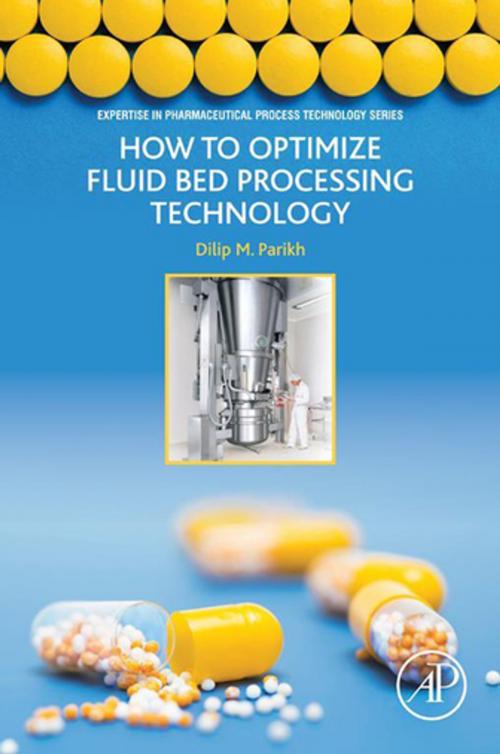How to Optimize Fluid Bed Processing Technology
Part of the Expertise in Pharmaceutical Process Technology Series
Nonfiction, Science & Nature, Science, Chemistry, Organic, Health & Well Being, Medical, Medical Science, Pharmacology| Author: | Dilip Parikh | ISBN: | 9780128047286 |
| Publisher: | Elsevier Science | Publication: | April 4, 2017 |
| Imprint: | Academic Press | Language: | English |
| Author: | Dilip Parikh |
| ISBN: | 9780128047286 |
| Publisher: | Elsevier Science |
| Publication: | April 4, 2017 |
| Imprint: | Academic Press |
| Language: | English |
How to Optimize Fluid Bed Processing Technology: Part of the Expertise in Pharmaceutical Process Technology Series addresses the important components of fluid bed granulation, providing answers to problems that commonly arise and using numerous practical examples and case studies as reference.
This book covers the theoretical concepts involved in fluidization, also providing a description of the choice and functionality of equipment. Additional chapters feature key aspects of the technology, including formulation requirements, process variables, process scale-up, troubleshooting, new development, safety, and process evaluation.
Given its discussion of theoretical principles and practical solutions, this is a go-to resource for all those scientists and new researchers working with fluid bed granulation as a unit operation.
- Written by an expert in the field with several years of experience in product development, manufacturing, plant operations, and process engineering
- Illustrates when fluid bed granulation is needed, when to use less common fluid bed granulation methods, and the advantages of fluid bed granulation when compared to other granulation techniques
- Offers troubleshooting tips and practical advice for scientists working with this technique
How to Optimize Fluid Bed Processing Technology: Part of the Expertise in Pharmaceutical Process Technology Series addresses the important components of fluid bed granulation, providing answers to problems that commonly arise and using numerous practical examples and case studies as reference.
This book covers the theoretical concepts involved in fluidization, also providing a description of the choice and functionality of equipment. Additional chapters feature key aspects of the technology, including formulation requirements, process variables, process scale-up, troubleshooting, new development, safety, and process evaluation.
Given its discussion of theoretical principles and practical solutions, this is a go-to resource for all those scientists and new researchers working with fluid bed granulation as a unit operation.
- Written by an expert in the field with several years of experience in product development, manufacturing, plant operations, and process engineering
- Illustrates when fluid bed granulation is needed, when to use less common fluid bed granulation methods, and the advantages of fluid bed granulation when compared to other granulation techniques
- Offers troubleshooting tips and practical advice for scientists working with this technique















